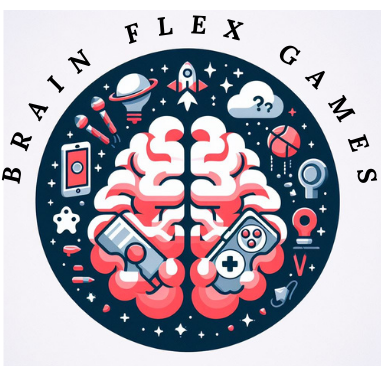You’re probably aware that as we age, staying mentally sharp becomes increasingly important.
But did you know that engaging in brain training can actually help in maintaining cognitive abilities?
Brain health tends to decline with age, leading to slower processing speeds and hiccups in memory recall.
Enter brain training games offer interactive challenges designed to keep the mind engaged.
These games target skills like
- problem-solving
- memory
- focus
- speed
aiming to keep the brain flexible and nimble. Even though these games are entertaining, they’re also instrumental in helping seniors retain their mental agility.
One of the best ways for seniors to incorporate these activities is by integrating them into daily life.
Whether that’s through a morning routine of playing Sudoku with a cup of coffee or enjoying a memory game before bedtime, consistency is key.
These games can profoundly enhance the quality of life for seniors, offering a sense of accomplishment and joy in mastering new challenges.
Moreover, they provide a conduit for social interaction, either through multiplayer games or sharing achievements with friends and family. That’s a big win for emotional well-being.
Spotlight on Free Brain Training Games
Here’s the deal, seniors have a plethora of options, spanning various types that stimulate different cognitive abilities, all at no cost.
Now what is a big deal about free games?
Simply put, they remove the barrier to entry. This means anyone, regardless of their budget, has the opportunity to benefit from these cognitive exercises.
Whether you’re using a smartphone, tablet, or computer, a world of brain training awaits.
Let’s start by looking at games that cater to reasoning and visualization.
Logic Balls offers a digital playground where reasoning skills are put to the test.
And with Tricky Blocks, you’re not just counting, you’re wrapping your mind around patterns and strategizing the best moves.
But perhaps you’re a fan of the classics? In that case, Tangram Puzzles will be right up your alley.
The strategy is to move shapes around and the cognitive benefits is a full-on workout for your planning and visualization skills.
By arranging geometric pieces to form a silhouette, you’re engaging in an age-old form of mental gymnastics.
What about enhancing that memory of yours?
Games like Have I Seen It or Not? and Memory Cards are designed to challenge your visual memory.
They invite you to remember and recall information, which can be incredibly satisfying and beneficial for your cognitive reserves.
Your brain is like a muscle in need of regular exercise, and these games act as the perfect gym equipment for mental fitness.
A Guide to Visual and Planning Skills Games
Visual acuity and the ability to plan, organize, and execute tasks are critical components of cognitive health for seniors.
By engaging in games specifically designed to target these areas, you can give your brain a meaningful workout.
Let’s take a look at ‘Messy Room,’ a game that serves more than its playful title suggests.
It’s designed to improve visual tracking and comparison skills. Players are challenged to spot inconsistencies and overcome clutter, which is fantastic for keeping an observant eye sharp.
“Spot the Difference” is another game that’s going to include lots of visual scanning and attention to detail.
You’re going to find out about subtle changes between two images. This isn’t just about finding mismatches; it’s also about enhancing attention span and visual processing speed.
For those who enjoy face-to-face interactions, ‘Face Recognition’ pushes you to remember faces and names, which is key for social interactions.
Similarly, ‘Find 10’ demands your visual attention, planning, and math skills, making it a comprehensive brain workout.
Then we have ‘Rotate Shapes,’ a game that revolves around spatial reasoning and comparison skills.
Think of it as a mental gymnastics routine that prepares your mind for problem-solving and logical thinking.
‘Mirror Mirror’ complements this by requiring intense focus and the ability to notice asymmetries, sharpening your overall visual attention.
The role of these visual games is pivotal because they’re tools that help maintain and improve cognitive functions.
As we age, these skills can decline, so it’s crucial to keep them active.
Choose something that you will enjoy, and remember, you can always adjust your approach down the road.
Word Games, Puzzles, and Traditional Challenges
What’s left?
Well, if you’re fond of words and numbers, or if traditional board games resonate with you, then brace yourself for more rewarding brain workouts.
Games like Wordle, Sudoku, and Crossword Puzzles don’t just entertain; they double as powerful tools for sharpening your language and problem-solving abilities.
These puzzles are not only fun, but they’re also a test of your wits, helping you to recognize patterns and build a better vocabulary.
If you’re seeking a dose of nostalgia along with a mental challenge, classics like Mahjong and Solitaire stand the test of time.
These games are not only delightful to play but also improve strategic thinking and pattern recognition.
For those who prefer a more tactile experience, the social and cognitive benefits of Chess and Scrabble are immense.
Engaging in these board games can foster social connections, which are just as vital for our well-being as mental exercises.
In conclusion, the generous assortment of brain training games available for seniors makes it easy to find something that’s both enjoyable and beneficial for brain health.
Whether it’s through logic puzzles, word games, or even a classic game of Chess, each activity you choose will contribute positively to keeping your mind sharp and engaged.
Remember to mix things up and challenge yourself regularly; your brain will thank you for it.
Remember to choose something that you like or resonates with you and start having fun because when it comes to maintaining cognitive health, enjoying the process is just as important as the exercise itself.
